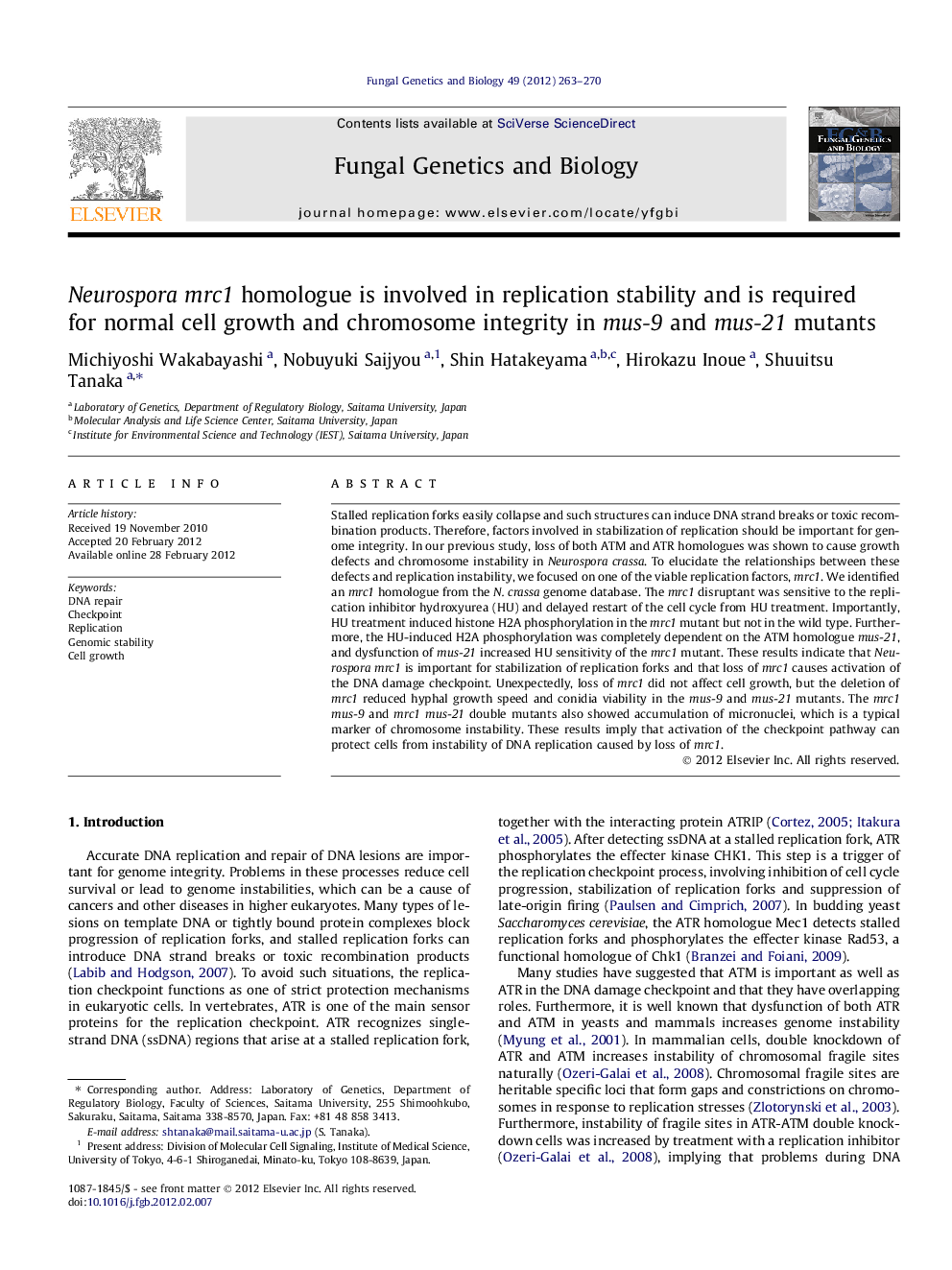| Article ID | Journal | Published Year | Pages | File Type |
|---|---|---|---|---|
| 2180949 | Fungal Genetics and Biology | 2012 | 8 Pages |
Stalled replication forks easily collapse and such structures can induce DNA strand breaks or toxic recombination products. Therefore, factors involved in stabilization of replication should be important for genome integrity. In our previous study, loss of both ATM and ATR homologues was shown to cause growth defects and chromosome instability in Neurospora crassa. To elucidate the relationships between these defects and replication instability, we focused on one of the viable replication factors, mrc1. We identified an mrc1 homologue from the N. crassa genome database. The mrc1 disruptant was sensitive to the replication inhibitor hydroxyurea (HU) and delayed restart of the cell cycle from HU treatment. Importantly, HU treatment induced histone H2A phosphorylation in the mrc1 mutant but not in the wild type. Furthermore, the HU-induced H2A phosphorylation was completely dependent on the ATM homologue mus-21, and dysfunction of mus-21 increased HU sensitivity of the mrc1 mutant. These results indicate that Neurospora mrc1 is important for stabilization of replication forks and that loss of mrc1 causes activation of the DNA damage checkpoint. Unexpectedly, loss of mrc1 did not affect cell growth, but the deletion of mrc1 reduced hyphal growth speed and conidia viability in the mus-9 and mus-21 mutants. The mrc1 mus-9 and mrc1 mus-21 double mutants also showed accumulation of micronuclei, which is a typical marker of chromosome instability. These results imply that activation of the checkpoint pathway can protect cells from instability of DNA replication caused by loss of mrc1.
► We elucidated functions of cell-cycle checkpoint on N. crassa vegetative growth. ► We focused on one of the viable replication factor, mrc1. ► mrc1 was important for stabilization of replication fork. ► Loss of mrc1 induced activation of cell cycle checkpoint. ► ATM, ATR can protect cells from instability of DNA replication caused by mrc1 loss.
